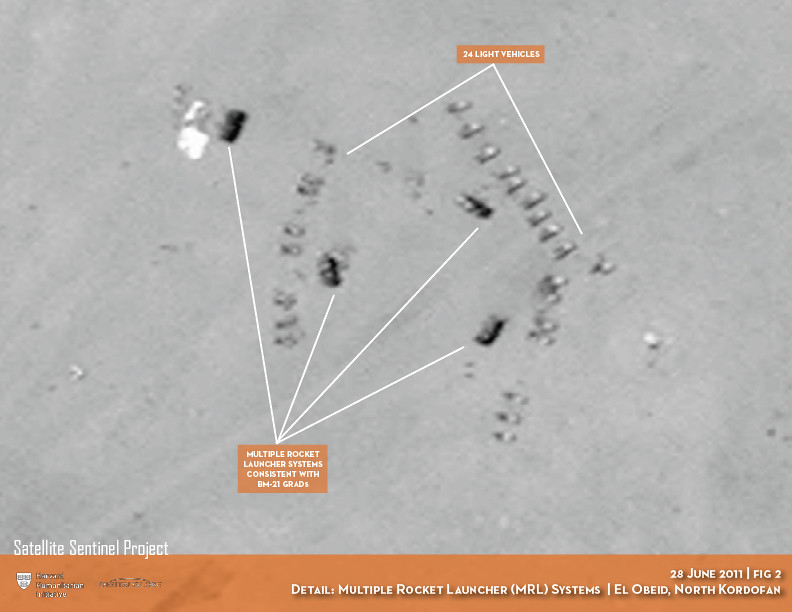RB209: Crisis Spotting (Drone Humanitarianism II)
November 9th, 2012
 Listen: or download | …also in Ogg
Listen: or download | …also in Ogg
What if you could witness a crime taking place from space, and even step in to prevent it?
A group of researchers at Harvard’s Humanitarian Initiative are trying to do exactly that.
As the nation of Sudan faced a complex crisis — a secession of the southern region that threatened to boil over into a civil war in 2011 — Nathaniel Raymond and his team at The Signal Program were carefully monitoring the conflict.
Their methods were uncommon. Using donated satellite imagery — the kind normally used to observe environmental conditions or create maps — the team tracked the movements of troops, military vehicles, and resources in near real-time, and used that information to alert humanitarian groups on the ground.
But it’s a process fraught with challenges, from imperfect imagery (imagine a cloud passing by just as you’re trying to spot tank movements), to the ethical questions that come with intervening in a conflict remotely.
So how does a group of civilians at Harvard go about monitoring an unfolding humanitarian disaster from space?
Our producer Frances Harlow spent a day with the team at the Signal Program to find out how they work.
(Click to find other episodes in our Drone Humanitarianism series!)
Listen up! Comment on the show! Tweet us!
![]()
![]() Subscribe to Radio Berkman
Subscribe to Radio Berkman
Reference Section:
Follow the work of the Signal Program
About the Satellite Sentinel Project
Creative Commons Media from:
General Fuzz: Reflective Moment
Vicious Twist: The Womb
Photo from Enough Project
This week’s episode produced by Frances Harlow, with Daniel Dennis Jones.
Entry Filed under: audio,radioberkman




Leave a Comment
Some HTML allowed:
<a href="" title=""> <abbr title=""> <acronym title=""> <b> <blockquote cite=""> <cite> <code> <del datetime=""> <em> <i> <q cite=""> <s> <strike> <strong>